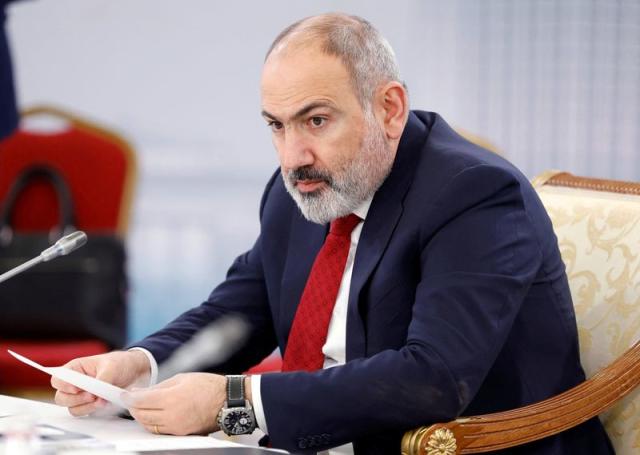
- PM Pashinyan has a personal interest in the European dream; he wants Armenia to come closer to the West, particularly the USA and France.
- The final blow to the relationship between Armenia and Russia came during the second Nagorno-Karabakh war in September 2023 when Artsakh finally fell into the hands of Baku. PM Pashinyan has held Russia responsible for this crisis.
- It is critical to recognise that Russia, a regional powerhouse, has an impact on Armenian security either directly or indirectly.
In recent months, Armenia has been at the centre of speculation regarding its shifting foreign policy dynamics, particularly concerning its relationship with Russia and potential alignment with Western powers. Prime Minister Nikol Pashinian’s government has made notable gestures indicating a desire to diversify Armenia’s international partnerships, prompting discussions about the country’s geopolitical trajectory.
Historically, Armenia has been a major partner of Russia, sharing a common history and culture under the USSR. Armenia has also maintained close defence and economic ties with Russia. However, ever since PM Nikol Pashinyan came to power in Yerevan, things have changed for both of these two countries. PM Pashinyan, since assuming power, has been very critical of Russia. According to him, Armenia is heavily dependent on Russia, and Armenia’s security is at the whim of Russia, thus Armenia should diversify its relationships and view the world beyond Moscow.
PM Pashinyan has a personal interest in the European dream; he wants Armenia to come closer to the West, particularly the USA and France, as it’s good for its overall development. He even wants to join NATO, as he says NATO can be a perfect security guarantor for Armenia and this would further bring Armenia closer to the West. Armenia’s NATO wish goes against the very security of Russia, which has long opposed the expansion of NATO near Russian territory. Armenia, being the neighbouring state to Russia, the inclusion of Armenia in NATO would provoke a direct threat to Russia, and as a result, Russia specifically has been very critical of the wishes of PM Pashinyan, resulting in slight differences between the two countries.
The major turning point between the two countries came in 2020 in the first Nagorno-Karabakh war, where Azerbaijan led an attack against the self-proclaimed state of Artsakh. Armenia and Azerbaijan have long had differences regarding Artsakh. Thousands of ethnic Armenians have been living in Artsakh, which further makes Armenia responsible for their security. In the first Nagorno-Karabakh war, Armenia sought direct Russian involvement in the war, being a common member of the CSTO. PM Pashinyan wanted to invoke the common security treaty under CSTO, but Russia rejected it as it was preoccupied with its special military operation in Ukraine, which made Armenia lose interest in the CSTO.
Since then, Armenia has been against CSTO and even warmed to exit the organization, and in the 2023 annual CSTO meeting, PM Pashinyan didn’t show his attendance. Since the first Nagorno-Karabakh war, Armenia has made multiple anti-Russian remarks, including those asking the deployed Russian peacekeepers in Artsakh to withdraw. Armenia has been accused by the Russian peacekeepers of not doing their work properly and not securing the interests of ethnic Armenians in the region. The final blow to the relationship between the two countries came during the second Nagorno-Karabakh war in September 2023 when Artsakh finally fell into the hands of Baku. Since then, PM Pashinyan has held Russia responsible for this crisis.
At present, the relationship between the two doesn’t seem to be on the right track. Armenia, after tasting the bitter experience of Artsakh, has been exploring other partners mainly in the West. Since the fall of Artsakh, Armenia has made several defence deals with France and India, and these two countries have emerged as new partners for Armenia’s defence and security.
However, it’s critical to recognise that Russia, a regional powerhouse, has an impact on Armenian security either directly or indirectly. As a result, good, sensible relations between the two countries are crucial for the region’s overall security and Armenia’s.
References:
- https://carnegieendowment.org/politika/91121
- https://www.rferl.org/a/armenia-pashinian-united-states-west-relations-russia-analysis/32591327.html
Aayush Pal is a freelance writer on contemporary geopolitical developments. The views expressed in his work are entirely his own.
